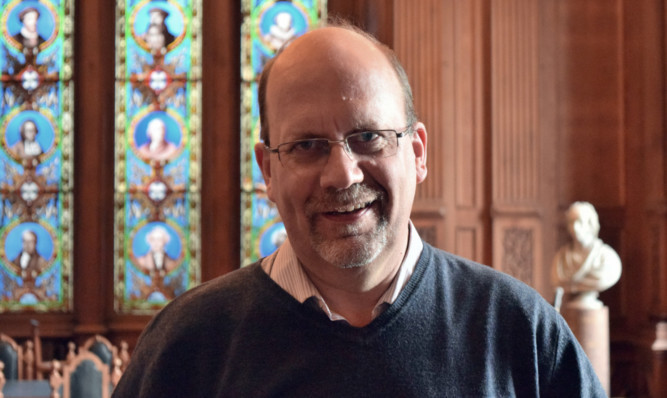A Dundee minister has said Christian youth camps are being equated with al Qaida training camps under proposed new legislation.
Consultation on UK Government plans to monitor “out-of-school education settings” have been branded a threat to religious freedom by the Rev David Robertson, moderator of the Free Church of Scotland.
The plans drawn up by the Department for Education aim to combat extremism by giving Ofsted inspectors the right to carry out spot-checks on any group for under-19-year-olds that gives six hours of instruction to children per week.
Inspectors would have the power to shut down any event which they deem to be out of step with “fundamental British values”.
Despite the Westminster proposals only covering England, some of the Free Kirk’s week-long summer holiday youth camps in Shropshire would be forced to register under the scheme.
Mr Robertson said: “We are concerned that this proposed legislation is an over the top reaction to one particular problem Islamic extremism.
“Because the UK Government does not want to appear to be picking on one religion, they therefore have to target everyone in order to get at their real target.
“The notion that a Free Church youth camp in Oswestry, complete with its trips to Alton Towers, should be regarded as equivalent to an al Qaida madrassa is as irrational as it is absurd.”
Mr Robertson added: “The consultation document speaks of ‘fundamental British values’, but does not tell us what those are.
“It is the essence of a totalitarian state that it alone defines what ‘fundamental values’ are.
“Whilst the UK Government’s intentions are undoubtedly good, their methodology and suggestions are irrational, bureaucratic and extreme.
“The very thought of Government-registered and policed Sunday schools, youth activity weekends and possibly even church services is ridiculous.
“Ironically it is a denial of the very values that the British Government says they are defending.”
Mr Roberston added he considers the plans as big a threat to religious freedom as the patronage system in the 19th Century.
This led to the 1843 Disruption when a third of the Church of Scotland’s ministers left to form the Free Church in protest at the state’s interference in the national church’s internal affairs.
Under patronage, landowners could nominate and present ministers to congregations, irrespective of whether those ministers were evangelical or even whether the congregation wanted them.
Mr Robertson said: “The Free Church of Scotland was formed as ‘the Church of Scotland, Free’ that is free from government control.
“In the early 19th Century we had to fight the attempts by the state to impose patronage on the Church. In the early 21st Century we now have to fight attempts by the Government to impose their ‘values’ upon the Church.
“It is a fight for freedom that we gladly take up, not just for ourselves, but for anyone who appreciates the British values of freedom, equality and diversity values which stem from our Christian heritage.”
